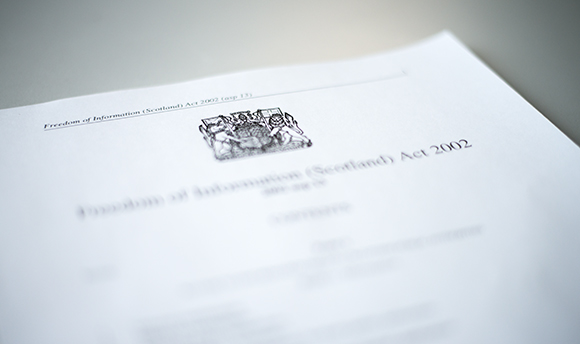Programme development, monitoring and review - review
8.1 Programmes are validated for a maximum period of five years, whereupon they are subject to review. This is also an opportunity to present for approval any major changes to the programme.
The stages of the programme review process are summarised below.
Step 1 - The Division of Governance and Quality Enhancement issues a draft review schedule.
Step 2 - The Head of Division agrees a date for the review event.
Step 3 - Review documents prepared and submitted to Governance and Quality Enhancement by the Programme Team, no later than the agreed date.
Step 4 - A review event occurs; normally this will be combined with re-validation.
Step 5 - A summary and full report of the review are produced and circulated to all Panel members, the Programme Leader and Head of Division.
Step 6 - Recommendations from Panel are reported to the Student Experience Committee, which advises Senate on programme approval. Senate has final authority to approve all programmes presented for review.
Step 7 - The Programme Team meets any conditions to the satisfaction of the Panel. This is reported to Senate through the Student Experience Committee minutes.
Step 8 - The Programme Leader updates the Definitive Programme Document and submits it to the Division of Governance and Quality Enhancement.
Schedule
Step 1 – Draft schedule
8.2 The Division of Governance and Quality Enhancement will issue a draft review schedule to Deans and Heads of Division approximately 18 months prior to the start of the new approval period.
Step 2 – Schedule approval
8.3 The Assistant Secretary, Governance and Quality Enhancement, in consultation with the Deans and Heads of Division will be responsible for finalising the schedule and confirming dates for individual review and re-validation events.
Review documentation
Step 3 – Review documentation
8.4 Full details on the content and format of the review documentation to be prepared by the Programme Team are outlined in the Validation and Review Guidance Notes. The documentation for review must include the following:
- Review Document with appendices, including Annual Monitoring and External Examiner Reports;
- Validation Document;
- Programme Specification;
- Student Handbook;
- Placement Handbook (if appropriate);
- Curriculum vitae of all teaching staff intended for the new programme;
Joint validation events with PSRBs may require additional documents, as determined by the relevant body.
The documentation must be submitted to the Division of Governance and Quality Enhancement no later than four weeks prior to the review event. The process for planning and validating the revised programme is as set out in paragraph 3. However, a review event takes, as its starting point, the evidence of how the programme has operated in the previous period of approval.
Review event
Step 4 – Review event
8.5 A review event normally takes place six to nine months prior to the end of the approved validation period, allowing time for the review process and for the Programme Team to meet conditions, if necessary.
8.6 The purpose of the review is to re-evaluate the validity of the aims and learning outcomes and to ascertain;
- How the programme has been operated and managed;
- How standards have been maintained and how this has been recognised;
- The ways in which the programme has met the needs of students, employers and the wider community as represented by feedback and performance against KPIs;
- The extent to which all the previously expressed aspirations and ambitions have been fulfilled;
- The extent to which the institution has been able to provide an environment in which the programme can flourish.
The review focuses on the academic health of the Programme, its relationship with the community and planned future developments. The Panel and the Programme Team discuss how the programme might develop in the future in order to meet its aims, learning outcomes, benchmark statements and the demands of the community more fully and to ensure the ongoing maintenance of its standards.
8.7 The Panel will carry out a critical appraisal of the programme, engaging in discussion, as appropriate, with the Programme Leader, Programme Team, Heads of contributing Divisions, recent graduates and students, and other stakeholders, as deemed necessary.
8.8 The Panel will focus on evaluating:
- The academic health and standard of the programme;
- Progress and changes in the programme since its validation or previous review;
- The continuing need for the programme, including the scale of student applications and intake, and its effectiveness and efficiency in staff and resource terms;
- The academic validity of proposed changes in the programme.
- Continued alignment with external points of reference including the Scottish Credit and Qualifications Framework and QAA Subject Benchmark Statements
- Alignment with QMU strategies, Graduate Attributes and other internal reference points;
- Adherence to QMU or PSRB regulations, policies and procedures;
- The accessibility of the award for all students[1];
- Commitment to widening access and retention, including through contextualised admissions;
- The staff experience, including support and development opportunities.
8.9 The Panel will consider these issues and will make comments and recommendations to the Programme Team and, if necessary, conditions to be met for the continued approval of the programme. The Panel will normally recommend the continuation of approval of an established programme for a further five years, unless there are good grounds to recommend that the student intake be modified or that the programme no longer be offered.
8.10 The Panel may recommend to the Student Experience Committee and to Senate that:
- The programme continue in approval without conditions;
- The programme continue in approval subject to specified conditions being met;
- The programme not continue in approval.
8.11 The Panel shall additionally specify the date of the next programme review and may identify particular issues to be addressed by that review or in the annual monitoring reports.
[1] Teams are expected to pay due regard to relevant legislation and, where appropriate, to promote equality in respect of the protected characteristics, as defined under the Equality Act 2010. The nine protected characteristics are age, disability, gender reassignment, marriage and civil partnership, pregnancy and maternity, race, religion or belief, sex, and sexual orientation.
After the event
Step 5 – Review report
8.12 A summary report of the review event will normally be produced within 48 working hours of the review and circulated to all Panel members for comment, to the Programme Leader for accuracy and to Head of Division and Dean of School for information.
8.13 A full report will normally be produced within 20 working days and circulated for comment to all Panel members and for accuracy to the Programme Leader. The relevant Head of Division and Dean will receive a copy of the report for information. Any responses to the report must be received by the date specified.
Step 6 – Approval
8.14 The report and Panel’s overall recommendation will be considered on behalf of Senate by the Student Experience Committee. This should normally happen no later than the final meeting of the Student Experience Committee each session for a revalidated programme due to start in the next academic year. Senate has ultimate authority to approve Panel recommendations, acting on advice from the Student Experience Committee. Where necessary, Convener’s Action can be taken to approve Panel recommendations out with the normal committee cycle.
8.15 The review report will also be received by the School Academic Board for information and to share practice.
Step 7 – Conditions
8.16 The Team’s response to conditions of review must be submitted, in writing, to the Division of Governance and Quality Enhancement, no later than the date specified at the event. The Secretary to the event will forward the response to conditions to the Panel. Panel members will each be asked to confirm by a specified date that the response is satisfactory. This will be reported to the Student Experience Committee and Senate. If the Panel is not satisfied with the response, this will normally be resolved by negotiation with the Programme Team. The Panel may delegate authority to the Convener to resolve outstanding issues. Exceptionally, the matter may be referred to the School Academic Board for consideration.
Step 8 – Definitive Programme Document
8.18 The Programme Leader must produce an updated Definitive Programme Document and submit it to the Division of Governance and Quality Enhancement once the response to conditions has been approved by the Panel and at least one month prior to the start of the programme.
8.19 The Definitive Programme Document must incorporate any changes required by the Panel. It should be marked as ‘definitive’ and the date amended to distinguish it from previous versions. It should be submitted electronically to the Division of Governance and Quality Enhancement. Governance and Quality Enhancement staff will file the institutional archive copy and pass a copy to Student Records.
8.20 The Division of Governance and Quality Enhancement will maintain a full set of all Definitive Programme Documents and will be responsible for communicating formally with PSRBs.
Back to Contents


